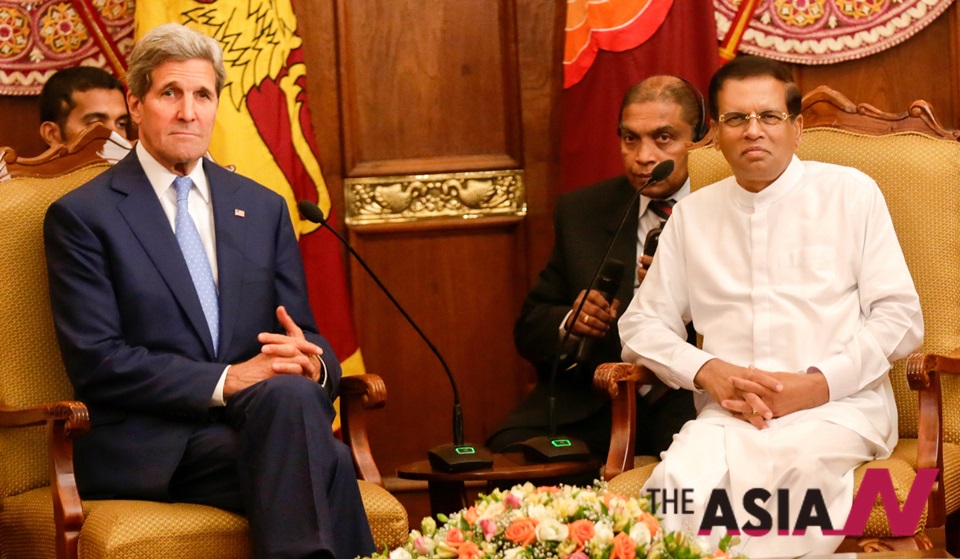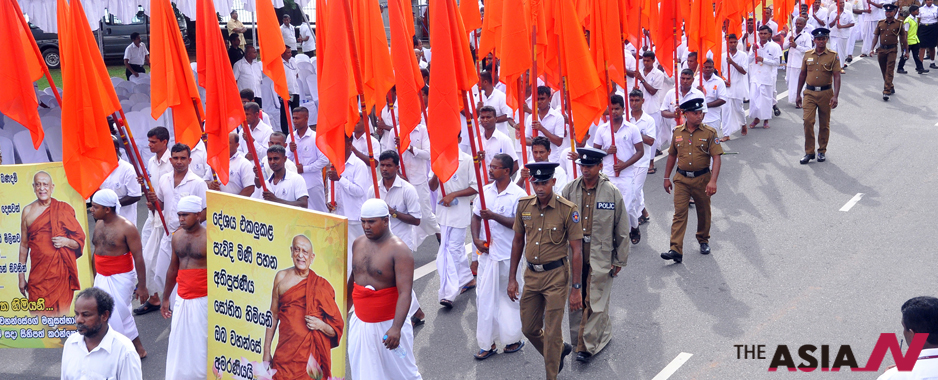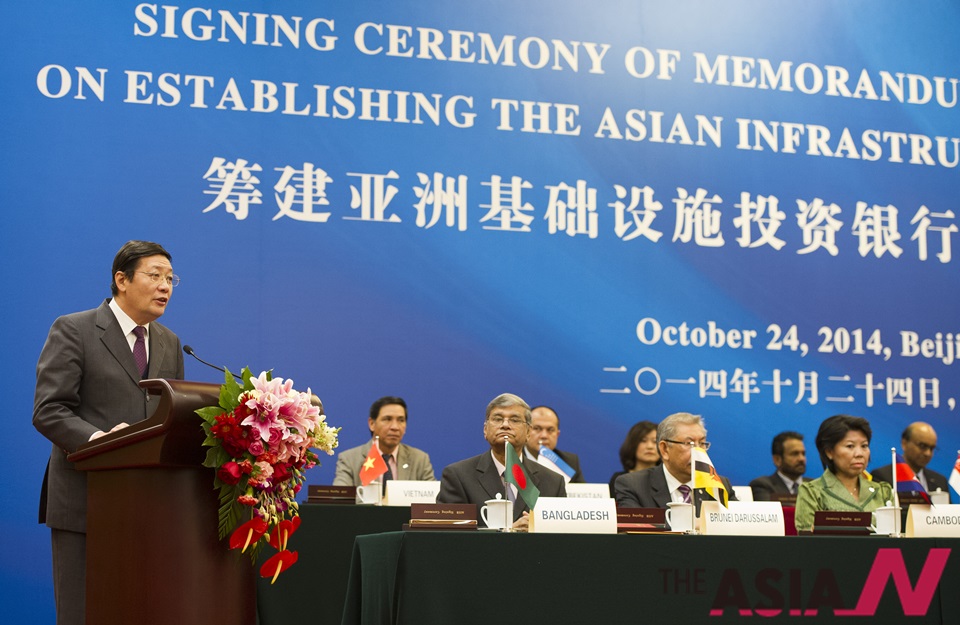* ‘아시아엔’ 해외필진 기고문의 한글요약본과 원문을 함께 게재합니다.
[아시아엔=칼링가 세네브라트네 스리랑카 프리랜서 기자] ‘마음챙김’(mindfulness, 불교 수행 전통에서 기원한 심리학적 구성 개념으로 현재 순간을 있는 그대로 수용적인 태도로 자각하는 것)이 미주권에서 반향을 일으키고 있는 가운데 아시아 학자들과 미디어 전문가들이 함께 모여 화합의 저널리즘과 21세기형 언론가양성을 위해 전통적인 아시아언론이 나아가야 할 길을 모색했다.‘아세안 지역통합을 위한 마음챙김’ 심포지엄이 지난해 12월 14~15일 태국 방콕의 출란롱코른대에서 개최된 가운데 유네스코와 ‘대화증진을 위한 국제프로그램’(International Program for the Development of Communication, IPDC) 공동주최로 이 대학 커뮤니케이션학과에서 열린 심포지엄에선 아시아 통합을 위한 언론인 양성 프로그램, 아시아 전통불교와 힌두교 사상, 유교철학 등 3가지 아젠다가 논의됐다.
타이출신 사회운동가 술락 시바락사는 “마음챙김에만 집착하면 부정적인 결과를 초래한다”며 “지속가능한 발전을 위해 윤리, 탐욕, 증오, 오해에 대한 배움이 필요하다”고 말했다. 그는 “미국기업가 사이에서는 최근 마음챙김이 열풍을 불고 있다”고 소개하고 “하지만 윤리적 훈련 없이 마음챙김 훈련이 가져다주는 이익만 추구한다면 그 결과는 비극적일 수밖에 없다”고 말했다.
발표자들은 “아시아철학은 2000년 전이나 지금이나 여전히 유효하다”며 “최근 마음챙김 열풍에서 보듯이 서구 지식사회는 지금 아시아철학을 자기 것으로 만들기에 여념이 없다”고 말했다. 발표자들은 “다만 아시아의 젊은 세대들이 ‘근대성의 근원’을 서구세계에서 찾는 오류를 범하고 있다”며 “그들 조상의 철학이 현재 삶과 관계가 없다고 생각하는 동안 서구세계는 오히려 동양철학을 배우려는 움직임이 강하게 불고 있다”고 했다.
이 심포지엄에 참석한 한 커뮤니케이션 전공교수는 “구텐베르크가 발명한 인쇄술로 성경의 보급이 급속도로 확대됐다고 학생들에게 가르치면서도 이보다 6세기 앞선 <금강반야바라밀경> 목판본이 불교전파에 크나큰 역할을 한 사실은 함구하고 있다”고 했다.
Asian Scholars crafting a Non-Adversarial approach to journalism
While a ‘Mindful Communication’ fad is currently sweeping across America, a group of Asian scholars and media practitioners gathered to examine how this traditional Asian way of communication could be adopted to train 21st century journalists to create media that would promote harmony rather than conflict.
Phuwadol Piyasilo Bhikku, a communication arts graduate from Chulalongkorn University and a former journalist, who is now a Forest Monk in northern Thailand, in the opening speech to the symposium noted that mindfulness practiced in the West, is “a bit problematic”, because it is used mainly on an individualistic level to relieve stress.
“Mindful practice in the West tries to be secular and practiced without having any religious values in it,” he argued. “You need to accompany it with panna (wisdom). Without this moral wisdom, the practice will not be enough to drive us in the right direction to help society”.
As a practical approach to journalism, Bhikku Phuwadol explained that at the root of Buddhism there’s the need to eradicate suffering, by being mindful of the suffering, you can report an issue without promoting division and conflict.
The symposium titled ‘Mindful Communication for ASEAN Integration’ was held on 14 and 15 December at the Communication Arts Faculty of Chulalongkorn University in association with the International Program for the Development of Communication (IPDC) of UNESCO. This gathering is part of a process to develop a new journalism training curriculum for Asia incorporating thoughts, concepts and ideas from Asia’s age old Buddhist, Hindu and Confucius philosophies.
The other keynote speaker, renowned Thai social activist Sulak Sivaraksa warned that a fixation on mindfulness could lead to something negative. Pointing out that mindfulness training has become popular with American corporate executives, he said it could make them more ruthless in pursuit of profit making, if this training is not accompanied by ethical training. “Learning about sila (ethics), greed, hatred and delusion are needed for mindful communication towards sustainable development,” he argued.
Many speakers pointed out that these Asian philosophical thoughts are as valid today as it was 2000 years ago, and these are being appropriated by western intellectual community ? like the current Mindful Communication fad – without giving due recognition to its origins, while young Asians are growing up with the delusion that anything modern comes from the West, and their ancient philosophies are irrelevant to shaping their modern lifestyles.
Dr. Binod Agarwal, former Vice Chancellor Himgiri Zee University from India pointed out, UNESCO’s earlier attempts to introduce a journalism curriculum for ‘emerging countries’ have “largely been Euro-American in approach and incorporated theoretical and ideological perspectives being followed in the West”. He blames this more on the Asian intellectual community who are largely educated in the West and uncritically transmits this knowledge to their Asian counterparts.
As One speaker pointed out, Asian communication scholars teach their students that the mass media originated with the printing of the Gutenburg Bibles in Germany in the 15th century, while ignoring the fact that 6 centuries earlier, the Chinese have printed the ‘Diamond Sutra’ that helped to spread Buddhism across Asia through the printed word.
There was also discussion on why the Asian media uncritically follow the western media’s focus on the South China Sea disputes that could lead to conflict in the region, while giving lip service to China’s proposed Silk Routes projects on land and sea that could bring much economic progress to the region and propel cooperation and prosperity across Asia.
Professor Kwangsoo Park, Director of Research Centre of Religions at Wonkwang University in South Korea pointed out a similar trend in the media in his country when it comes to reporting North Korea. “They always report of North Korea’s nuclear weapons, but ignores issues as family reunions and economic relations between the two countries,” he noted, adding “(Korean) media needs to understand these issues more deeply”.
Retired Malaysian diplomat Dr. Ananda Kumaraseri of the Human Development and Peace Foundation believes that, we need to “de-culturalise” the journalist. “We need to understand what the mind is because problems are created by humans” he points outs, arguing that the media plays on this by sensationalizing the problems, promoting sensual desires and consumerism. “We need to train journalists to direct their minds towards the roots of the problems (not sensationalizing it)” he adds.
Professor Supaporn Phokaew of Chulalongkorn University’s Communications Arts Faculty tends to agree. She argues that a good knowledge of the concepts of loving kindness and compassion towards living beings, a fundamental aspect of Buddhist teachings, could equip the journalist with a deep sense of empathy towards others (they report about). “We teach students writing and speaking skills, but not listening skills” she noted, adding, “we need to introduce teaching deep listening skills to practice mindful communication. We need to listen to people to relate to society”.
The western gospel of human rights also came with criticism by Asian scholars pointing out that ill-conceived and arrogant applications of this individualistic rights’ has created chaos in the Middle East, turning the Arab Spring into a bleak winter. They also pointed out that free speech has limits, citing the Prophet Mohammad cartoon episodes in Denmark and France. They argued that this gospel needs to be critically examined in Asia.
Bhutan’s Royal Thimpu College Dean Dorji Wangchuk believes that what is good from the West could be adapted in Asia “to suit our needs and values”. He described his kingdom’s national ideology Gross National Happiness (GNH) as “development with values’. He pointed out that the ‘fourth estate’ model of western journalism is fast disappearing due to the rise of the social media, which is offering different forms of storytelling and social interaction. Rather than a commercial model, he argues that Asia should aspire to develop a media model based on contentment.
Buddhism as a journalist’s approach
He calls the contentment media model as the Middle Path. “Bhutan is building a form of journalism that advocates contentment, community, compassion and core values of Bhutanese society” Dorji explained. “The Middle-Path journalism will promote news as a social good and not as a commercial commodity – and will help build communities, consensus and contentment, not to thrive on conflicts, controversies and commercialism”.
While open discussion and debate is essential for a healthy human community, Malaysian Lim Kooi Fong, Director of the Buddhist Channel argued that it has to be accompanied by responsibility. He pointed out that there is much to learn from the Buddhist philosophy in this regard, but, it should not be used to distract criticism of authoritative ruling elites, like in the ‘Asian Values’ debate of the 1990s.
“Underlying some of the Asian voices is the genuine concern that a liberal individualistic ethos in conjunction with a legalistic, aggressive and consumerist attitude does not meet traditional values of Asian societies, that is, values such as social harmony, respect for family and authorities and in particular emphasis on duty and responsibility rather than on claimable rights” argues Lim, adding “the representatives of ‘Asian Values’ and the defenders of a ‘Western Liberalism’ could learn from one another and in a sense complement each other”.
Thai writer and poet Khunying Chamnongsri Hanchanlash argues that responsibility and accountability should come naturally to a mind that is trained in the 3 principles of Buddhist practice of moral conduct (sila), composure of mind (samadhi) and insight (panna). “Mindfulness, is a quality that is developed from the practice” she points out. “For communication, it is an exploration of what arises in one’s own mind, the emotions, the bias, the motive, before the actual act of communication. It is the space of ‘knowing’ in which one is able to decide rather than react’.
Asian values and western liberalism
A Vietnamese Catholic scholar pointed out that in presenting mindful journalism to the ASEAN community one needs to be careful, so that it is not seen as a religious concept. “To sell this to a non-Buddhist audience, it needs to be attached to ethics and virtues that are reflected in other religious traditions too”.
Professor Park argues that ethics and virtues are indeed an important part of the Asian tradition, noting that not only in Buddhism but also in Confucius philosophy these practices are given importance. Quoting Taoist philosopher Chuangtzu, he argues that the adversary style of journalism could be transformed into a more cooperative and active problem-solving style of journalism.
Fellow Korean, Emi Hayakawa of the Korean Buddhist TV Network (BTN) gave an example of how this could be practiced. She showed an example to illustrate it, when a major shipping disaster happened in Korea in April 2014, while the major KBS network reported extensively on the number of dead, rescue operations and showing body bags and the grieving, BTN focused on how the Buddhist community is praying for the safe return of the survivors and how they are consolidating family rescue plans and helping in the healing process.
“The journalist has a critical role to convey that communities and spiritual leaders of the world can play an important role in addressing the enormous (development) problems (of the human race)” argues Prof Park. “The journalist should develop their interest in new ethical values to benefit the weak and poor people in the global economy (and point out) it is necessary for all of us to change our lifestyles (to avoid) a global financial crisis”.
Nothing that the practice of mindful journalism is a secular practice rather than a spiritual one, Hanchanlash believes compassion and respect for the individual, as a positive link, will be essential in the creation of ASEAN community as a beautiful mosaic of culture and beliefs. “With mindfulness of the users, the powerful tool of mass communication can become an effective agent in the building of an unselfish and constructive society,” she argues.





